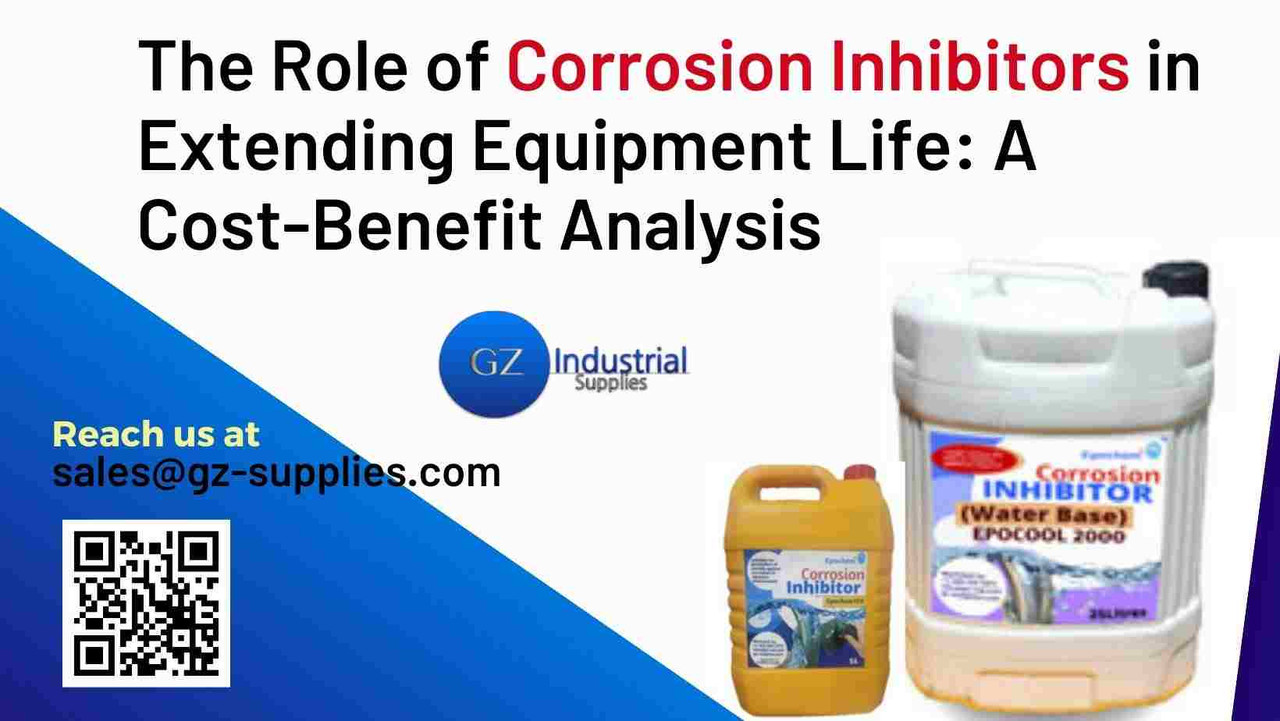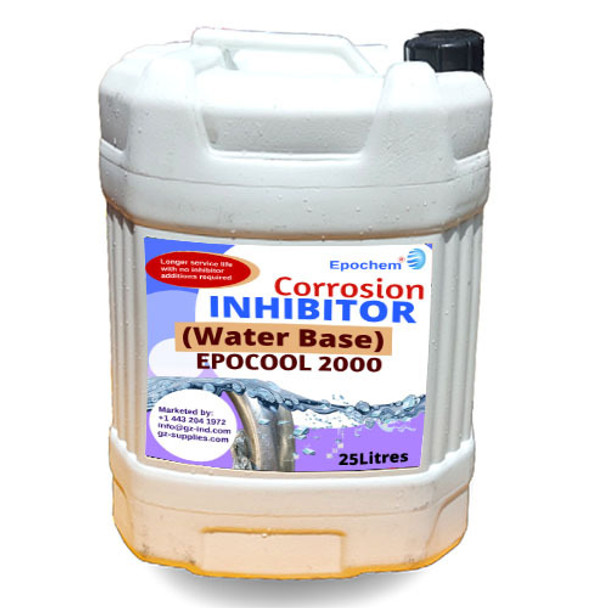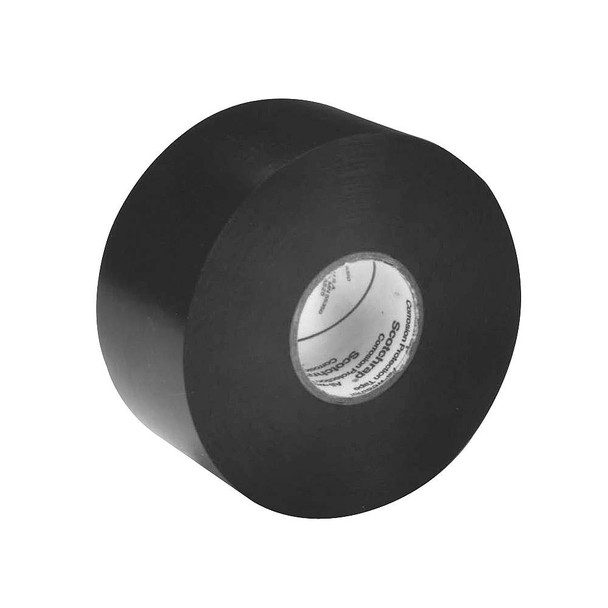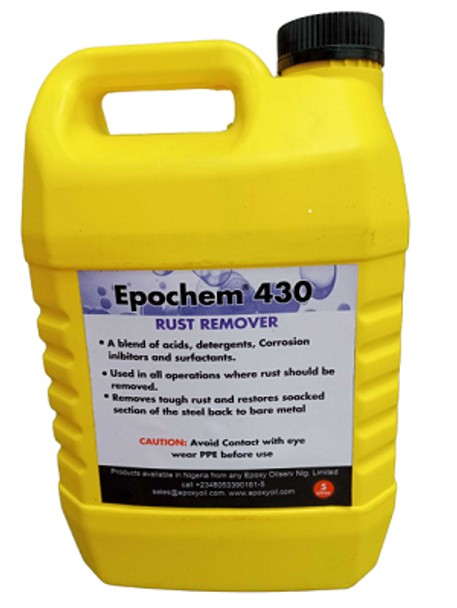The Role of Corrosion Inhibitors in Extending Equipment Life: A Cost-Benefit Analysis
Corrosion is a significant issue that impacts nearly every industry, leading to equipment failure, increased maintenance costs, and substantial economic losses. In fact, studies have shown that the global cost of corrosion amounts to trillions of dollars annually, with industries such as oil and gas, manufacturing, and transportation being particularly vulnerable. Corrosion weakens metal structures, shortens the lifespan of equipment, and can even lead to catastrophic failures if not properly managed.
One effective solution to combat this issue is the use of corrosion inhibitors. These chemical compounds are designed to prevent or slow down the corrosion process, thus extending the life of industrial equipment. However, while corrosion inhibitors offer numerous benefits, it is crucial for businesses to conduct a thorough cost-benefit analysis to determine whether the investment in these chemicals is justified for their specific needs.
Epocool 2000 Corrosion Inhibitor Coolant
Understanding Corrosion and Its Effects
Types of Corrosion
Corrosion is a natural process that occurs when metals are exposed to environmental elements, leading to their gradual degradation. There are several types of corrosion, each affecting industrial equipment in different ways:
- Uniform Corrosion: This is the most common type, where the metal surface corrodes evenly. While it is relatively predictable, it can still lead to significant material loss and structural weakness over time.
- Pitting Corrosion: This type occurs when localized spots on the metal surface corrode, leading to small pits or holes. Pitting is particularly dangerous because it can penetrate deep into the metal, compromising the integrity of the equipment without being immediately visible.
- Galvanic Corrosion: When two different metals are in electrical contact with each other in the presence of an electrolyte, galvanic corrosion can occur. The less noble metal corrodes faster, leading to accelerated degradation of the equipment.
Understanding these types of corrosion is essential for identifying which corrosion inhibitors will be most effective in protecting your equipment.
The Economic Impact of Corrosion
Corrosion-related failures are not just a technical issue—they carry significant financial implications. The costs associated with corrosion can be broken down into direct and indirect expenses:
- Direct Costs: These include the expenses of repairing or replacing corroded equipment. In industries such as oil and gas, where large pipelines and storage tanks are used, these costs can be enormous.
- Indirect Costs: These include production downtime, lost revenue, and the potential environmental and safety liabilities resulting from equipment failure. For example, a corroded pipeline that leaks oil could lead to environmental damage, costly cleanup operations, and legal consequences.
The cumulative effect of these costs underscores the importance of implementing effective corrosion prevention strategies.
Corrosion Protection tape
What Are Corrosion Inhibitors?
Corrosion inhibitors are chemical substances that, when added in small quantities to a corrosive environment, significantly reduce the rate of corrosion. They function by forming a protective film on the metal surface, which acts as a barrier between the metal and the corrosive agents, such as water, oxygen, and salts.
Types of Corrosion Inhibitors
There are several types of corrosion inhibitors, each designed to combat different forms of corrosion:
- Anodic Inhibitors: These inhibitors protect the anodic sites on the metal surface by forming a passive oxide layer. This layer prevents the metal from further oxidation, thereby reducing corrosion.
- Cathodic Inhibitors: These inhibitors work by reducing the cathodic reaction, often by precipitating compounds onto the cathodic areas of the metal surface. This action limits the flow of electrons and slows the corrosion process.
- Mixed Inhibitors: As the name suggests, mixed inhibitors offer protection by affecting both the anodic and cathodic processes, making them versatile for various environments.
- Volatile Corrosion Inhibitors (VCIs): These are used in enclosed environments where they vaporize and then condense on the metal surface, providing a protective layer that prevents corrosion.
- Organic and Inorganic Inhibitors: Organic inhibitors are typically based on nitrogen, sulfur, or oxygen compounds and are often used in oil and gas applications. Inorganic inhibitors, such as chromates and phosphates, are widely used in water treatment and other industrial processes.
Application Methods
Corrosion inhibitors can be applied in several ways, depending on the environment and the type of equipment being protected:
- Coatings: Corrosion inhibitors are often included in paint or other coating materials that are applied directly to the metal surface.
- Additives in Fluids: In industrial processes that involve the flow of liquids, inhibitors can be added directly to the fluid (e.g., water, oil) to protect the internal surfaces of pipes and vessels.
- Direct Application: For large structures or equipment, inhibitors may be applied directly through spraying or other surface application techniques.
The Benefits of Using Corrosion Inhibitors
1. Extended Equipment Life
One of the most significant benefits of using corrosion inhibitors is the extended life they provide to industrial equipment. By preventing or slowing down the corrosion process, these chemicals help maintain the structural integrity and functionality of machinery, pipelines, and other critical components. In industries such as oil and gas, where equipment is exposed to harsh environments, the use of corrosion inhibitors can mean the difference between a piece of equipment lasting a few years or several decades.
2. Reduction in Maintenance Costs
Corrosion inhibitors also play a crucial role in reducing maintenance costs. Equipment that is well-protected from corrosion requires less frequent repairs and replacements, which translates to lower maintenance expenses over time. For example, in the chemical processing industry, where corrosion can lead to frequent leaks and shutdowns, the use of inhibitors can significantly reduce the frequency of such incidents, leading to substantial cost savings.
3. Minimized Downtime
Equipment downtime due to corrosion-related failures can be costly, not just in terms of repairs but also in lost production time. Corrosion inhibitors help minimize this downtime by ensuring that equipment remains operational for longer periods. This is particularly important in industries like manufacturing, where continuous operation is critical to meeting production targets.
Epochem 430 Rust Remover 5 Liters
The Costs Associated with Corrosion Inhibitors
While the benefits of using corrosion inhibitors are clear, it’s equally important to consider the costs involved in implementing these protective measures. Understanding the financial outlay required can help businesses make informed decisions about the adoption of corrosion inhibitors.
1. Initial Investment
The first cost to consider is the initial investment required to purchase and apply corrosion inhibitors. This includes the price of the inhibitors themselves, which can vary widely depending on the type, quality, and quantity required for the specific application. Additionally, the cost of application equipment and any necessary modifications to existing infrastructure must be factored in. For instance, applying inhibitors in pipelines or large industrial tanks may require specialized equipment, which adds to the initial expenditure.
2. Ongoing Costs
Beyond the initial investment, there are ongoing costs associated with the regular application and maintenance of corrosion inhibitors. These include:
- Reapplication: Depending on the environment and the type of inhibitor used, corrosion inhibitors may need to be reapplied periodically. This could involve shutting down equipment temporarily, which could lead to additional costs in terms of lost production time.
- Monitoring: Regular monitoring is essential to ensure that the corrosion inhibitors are performing as expected. This could involve the use of sensors, chemical analysis, or visual inspections, all of which come with associated costs.
- Disposal: Some corrosion inhibitors, particularly those used in water treatment or other fluid systems, may require safe disposal of residual chemicals, which can add to the overall cost.
3. Training and Compliance
Another cost factor is the training required for personnel who will be applying and managing the use of corrosion inhibitors. Workers need to be trained not only in the correct application techniques but also in the safety protocols associated with handling potentially hazardous chemicals. Additionally, businesses must ensure compliance with industry regulations and environmental standards, which might involve additional administrative costs or investments in compliance software and services.
Cost-Benefit Analysis of Using Corrosion Inhibitors
To illustrate the cost-benefit analysis of using corrosion inhibitors, consider the Epocool 2000 Corrosion Inhibitor Coolant offered by GZ Industrial Supplies. This coolant is specially formulated for a range of industrial applications, including stationary engines, heat transfer systems, and heavy-duty diesel engines. Its advanced carboxylate inhibitor system, combined with nitrite/molybdate secondary inhibitors, provides comprehensive protection for all cooling system components.
Extended Equipment Life and Reduced Maintenance Costs
By using Epocool 2000, industries can significantly extend the service life of their equipment. The coolant protects all industrial cooling system metals, including brass, copper, solder, steel, cast iron, and aluminum, ensuring they remain free from corrosion over extended periods. Additionally, the absence of harmful compounds like silicates, phosphates, borates, and amines further enhances its protective qualities, preventing the formation of deposits and hard water scale. This results in lower maintenance costs and reduced downtime, as equipment remains in optimal condition for longer periods without the need for frequent repairs or replacements.
Environmental and Safety Benefits
Another critical benefit of Epocool 2000 is its environmental friendliness. The coolant is 100% biodegradable in its unused form, making it a responsible choice for industries looking to minimize their environmental impact. Furthermore, the product's low dissolved solids formula prevents the formation of deposits that could otherwise lead to operational inefficiencies or environmental contamination.
Financial Considerations and ROI
While the initial investment in a high-quality coolant like Epocool 2000 might seem significant, the long-term savings on maintenance, repairs, and equipment replacement far outweigh the costs. The extended service life of equipment and the reduction in downtime directly translate into improved operational efficiency and cost savings. When calculating the ROI, businesses should consider not only the direct financial savings but also the added value of enhanced safety and environmental compliance.
Epochem 109 Corrosion Inhibitor 5Ltr
Case Studies
Real-world case studies can provide valuable insights into the cost-benefit analysis of using corrosion inhibitors. Here are a couple of examples:
- Oil and Gas Industry: A pipeline operator in the oil and gas sector implemented a cathodic protection system combined with anodic inhibitors. Over five years, they reported a 40% reduction in corrosion-related maintenance costs and a significant increase in pipeline life expectancy. The initial investment was recouped within three years due to the reduced need for repairs and maintenance.
- Manufacturing Sector: A manufacturing plant dealing with corrosive chemicals began using organic corrosion inhibitors in their storage tanks. The cost of the inhibitors was offset by a 50% decrease in tank replacement costs and a 30% reduction in downtime. The ROI was realized within two years, making the investment highly cost-effective.
Comparing Costs and Benefits
By comparing the costs of corrosion inhibitors with the financial benefits, businesses can determine whether the investment is worthwhile. In many cases, the extended equipment life, reduced maintenance costs, and minimized downtime provide a significant return on investment, making corrosion inhibitors a smart financial decision.
Best Practices for Implementing Corrosion Inhibitors
Implementing corrosion inhibitors effectively requires careful planning and adherence to best practices. This section will outline the steps businesses should take to maximize the benefits of corrosion inhibitors.
1. Choosing the Right Inhibitor
Selecting the correct type of corrosion inhibitor is critical to its effectiveness. Consider the following when choosing an inhibitor:
- Type of Material: Ensure the inhibitor is compatible with the material of the equipment or structure it will be protecting.
- Environmental Conditions: Consider the environment in which the equipment operates. Factors such as temperature, humidity, and exposure to chemicals will influence the choice of inhibitor.
- Type of Corrosion: Identify the specific type of corrosion most likely to affect your equipment (e.g., pitting, galvanic) and choose an inhibitor designed to combat that type.
2. Effective Application Techniques
Proper application of corrosion inhibitors is crucial to their effectiveness. Some best practices include:
- Surface Preparation: Ensure that the metal surface is clean and free of any existing corrosion or contaminants before applying the inhibitor.
- Correct Dosage: Apply the inhibitor in the correct concentration to ensure adequate protection without wasting resources.
- Application Method: Use the most appropriate method for the environment, whether it be coating, adding to fluids, or direct application.
3. Monitoring and Maintenance
Even after applying corrosion inhibitors, regular monitoring is essential to ensure they remain effective. This includes:
- Regular Inspections: Conduct regular inspections to check for signs of corrosion and ensure that the inhibitors are performing as expected.
- Reapplication Schedule: Follow a reapplication schedule based on the manufacturer’s recommendations and the specific conditions of the equipment.
4. Compliance and Safety Considerations
Ensuring compliance with industry regulations and safety standards is crucial when using corrosion inhibitors. This includes:
- Environmental Regulations: Make sure the inhibitors used do not violate any environmental protection laws, particularly if they will be disposed of in large quantities.
- Worker Safety: Train workers on the safe handling and application of corrosion inhibitors, and provide them with the necessary personal protective equipment (PPE).
Frequently Asked Questions (FAQs)
To provide further clarity on the topic of corrosion inhibitors and their role in extending equipment life, here are some frequently asked questions:
1. What is the main difference between anodic and cathodic corrosion inhibitors?
- Answer: Anodic corrosion inhibitors work by forming a protective oxide layer on the anodic areas of the metal surface, preventing further oxidation and corrosion. Cathodic inhibitors, on the other hand, reduce the cathodic reaction by precipitating compounds onto the cathodic sites, which limits electron flow and slows down the corrosion process. Both types are effective in different scenarios and are often used together for comprehensive protection.
2. How often should corrosion inhibitors be reapplied?
- Answer: The frequency of reapplication depends on several factors, including the type of inhibitor used, the environmental conditions, and the specific application. In general, corrosion inhibitors should be reapplied according to the manufacturer’s recommendations, which could range from several months to a few years. Regular monitoring and inspections can also help determine the optimal reapplication schedule.
3. Are there environmentally friendly corrosion inhibitors available?
- Answer: Yes, there are environmentally friendly corrosion inhibitors, often referred to as "green" inhibitors. These inhibitors are typically made from biodegradable materials and are less toxic compared to traditional inhibitors. They are especially useful in applications where environmental impact is a significant concern, such as in water treatment and marine industries.
4. Can corrosion inhibitors be used on all types of metals?
- Answer: While corrosion inhibitors are effective on many types of metals, their suitability depends on the specific metal and environmental conditions. For example, some inhibitors may be more effective on ferrous metals like steel, while others may be designed for use on non-ferrous metals like aluminum or copper. It's important to choose the right inhibitor based on the material you're protecting.
5. What are the most common signs that corrosion inhibitors are no longer effective?
- Answer: Common signs that corrosion inhibitors are no longer effective include visible rust or pitting on the metal surface, changes in the color or texture of coatings, and increased maintenance issues such as leaks or structural weakness. Regular inspections and monitoring are crucial to detect these signs early and take corrective action.
Related Article
Conclusion
Corrosion inhibitors play a vital role in extending the life of industrial equipment, reducing maintenance costs, and minimizing downtime. While there are costs associated with their use, a thorough cost-benefit analysis often reveals that the investment in corrosion inhibitors is well worth it, particularly in industries where equipment longevity and reliability are critical. By choosing the right inhibitors, applying them correctly, and following best practices, businesses can protect their assets and enhance their operational efficiency.
The use of corrosion inhibitors, such as Epocool 2000 Corrosion Inhibitor Coolant, demonstrates the tangible benefits of investing in high-quality products that protect industrial equipment. By extending equipment life, reducing maintenance costs, and offering environmental benefits, corrosion inhibitors provide a robust return on investment, making them a smart choice for any industry.
For expert guidance on selecting and implementing corrosion inhibitors, contact our team at GZ Industrial Supplies. We offer a wide range of high-quality corrosion inhibitors tailored to meet the specific needs of your industry, ensuring that your equipment remains protected and operational for years to come.












